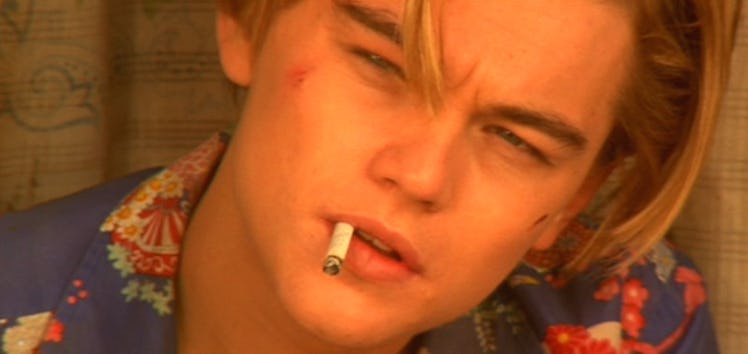
Leonardo DiCaprio's Bad Habit Is Killing Him... And The Environment
Sunday night was Leonardo DiCaprio's night.
The 41-year-old actor finally took him the Oscar for Best Actor for his performance in "The Revenant."
He took his time on stage to not only thank those who helped make the film, but to also give a shoutout to Mother Nature.
Leo's speech read,
I just want to say this -- making 'The Revenant' was about man's relationship to the natural world, a world that we collectively felt in 2015 as the hottest year in recorded history... Climate change is real, and it's happening right now. It is the most urgent threat facing our entire species, and we need to work collectively together and stop procrastinating. We need to support leaders around the world who do not speak for the big polluters or the big corporations, but who speak for all of humanity, for the indigenous people of the world…and for those people out there whose voices have been drowned out by the politics of greed.
Yes, all great points, Leo.
And for the most part, the actor really does practice what he preaches. He is active in the environmentalist community and once said in an interview he considered leaving acting to pursue environmentalism full time.
Leo reportedly told The Sunday Times,
I had a friend say, 'Well, if you're really this passionate about environmentalism, quit acting,' but you soon realize that one hand shakes the other, and being an artist gives you a platform. Not that necessarily people will take anything that I say seriously, but it gives you a voice.
I mean, one look at his Instagram account and the Leonardo DiCaprio Foundation website, and anyone could see this guy really cares about the environment.
Still, there is one thing Leo does that's bad for him and also bad for the environment: smoking.
Leo is an admitted life-long smoker. He switched over to e-cigarettes recently, but that doesn't change the harm he's doing to his body and the environment.
Dr. Penny Woods, the chief executive of the British Lung Foundation, told the Independent,
We support vaping as a means of helping people quit the far most harmful practice of smoking if they've tried other means and haven't been successful.
Woods added,
However, although vaping is much less harmful than smoking, that doesn't make it harmless.
Besides being bad for Leo's personal health, tobacco is a well-known environmental killer.
According to Portland State University,
Tobacco is a sensitive plant to grow, and therefore needs multiple pesticides, fungicides and herbicides are added to the crop throughout its growing season. Some tobacco crops receive up to sixteen applications of chemicals. Tobacco pesticides harm birds and other small animals, and/or cause soil depletion; some, like methyl bromide, are known to cause ozone depletion. According to the General Accounting Office, every year an estimated 27 million pounds of pesticides are sprayed onto tobacco fields In the United States,vii and tobacco ranks sixth among all agricultural commodities in the amount of pesticides applied per acre.
Beyond insects and animals, these pesticides are also extremely harmful to those who harvest the plant and can cause a plethora of health issues.
In addition to pesticide poisoning, growing tobacco also takes a great deal of space. As the university additionally points out,
Each year, 20,000 hectares of forests are cleared to cure tobacco(with approximately 1000-2500 trees per hectare, which equals 20 to 50 million trees cut down every year, depending on type of tree). This accounts for 5 percent of deforestation in developing countries, especially among major tobacco producers such as China, Malawi and Zimbabwe.
Come on, Leo. We love you, but to be a real environmentalist, you're going to have to cut this habit.
Citations: Fact Sheet: Environmental Impact of Tobacco (Portland State University)